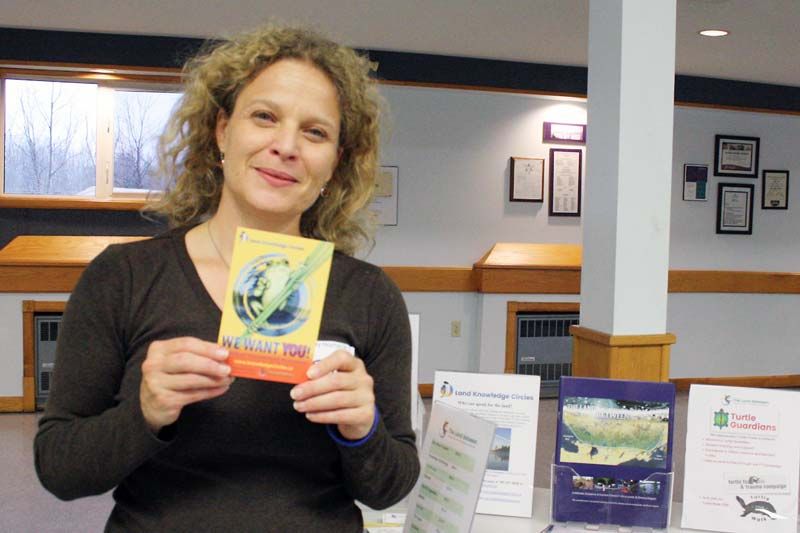Jonathan Davies | Nov 01, 2017
The Land Between, a grassroots ecology-focused charity, recognizes the landscape spanning from the Georgian Bay coast to the Ottawa Valley as “a treasure trove of ecosystem services benefiting all of Ontario.”
The organization held a knowledge circle Saturday October 28th in Verona, the third in a series of four within the region which seeks to address these questions: “Who knows the land?” “Who can speak for the land?” and “who cares for the land?”
Chief manager, Leora Berman, explains that the charity uses knowledge circles in place of the more familiar boardroom table for its governance. They are a democratic format, through which those in attendance, seated in an inward-facing circle, have equal voice and opportunity to hear and be heard.
“People feel grateful for the forum,” says Berman, noting that in previous years, advisory committees provided a mechanism for people to communicate local environmental needs and risks to the ministry. These have largely been scrapped in favour of regional-scale consultation.
Prominent in the discussions were current ecological changes: disruptions in the seasons' cycles (the lack of deep winter, the late onset of fall, the intensity of summer heat) and the related issue of declines in critical species such as birds, bugs and water fowl.
Participants also raised concerns around human causes and responses: complacency in the face of climate change (such as the sentiment that warmer winters are a blessing) and individual, government and corporate responsibility as it relates to reducing and better managing waste, using water sources carefully and not treating them as commodities, using land for renewable energy projects with adequate consideration for their suitability to a given terrain.
Addressing one of the enigmatic questions the forum set out to explore, '”who can speak for the land?” one participant proposed that without a shift away from the prevailing view of land as an object (as opposed to a being with rights) only ineffective, patchwork solutions to climate change and ecological degradation will be on offer. If non-human entities such as corporations are entitled to rights, so goes the notion, one should be able to give nature legal protection when it is threatened, and recourse when it is harmed.
A review of themes raised at Saturday's gathering, along with those from previous sessions held in Gravenhurst and Buckhorn, and a final one slated for November 4th in Madoc, will be published online by The Land Between for the public's benefit. Berman notes that each of the sessions held thus far reached forty people, surpassing expectations.
More Stories
- Harrowsmith Public School and the Magic of Theatre
- You’re a Good Man Charlie Brown – a school wide effort at SHS
- Leadership From Within
- New Bulk Water Station in Sydenham
- Frontenac County Council looks at Healthcare Recruitment
- Good Turn Out Maple Fest Despite Rain
- Future looking brighter for Denbigh Fire Department says Chief
- Local Favourites featured at 2nd Annual SF Music Festival
- Perth Festival of the Maples, Saturday, April 27
- South Frontenac Council

